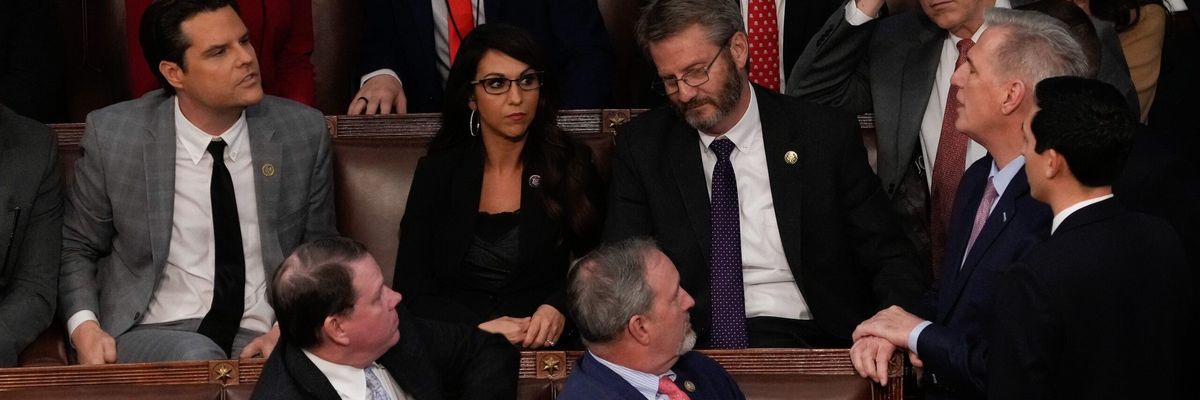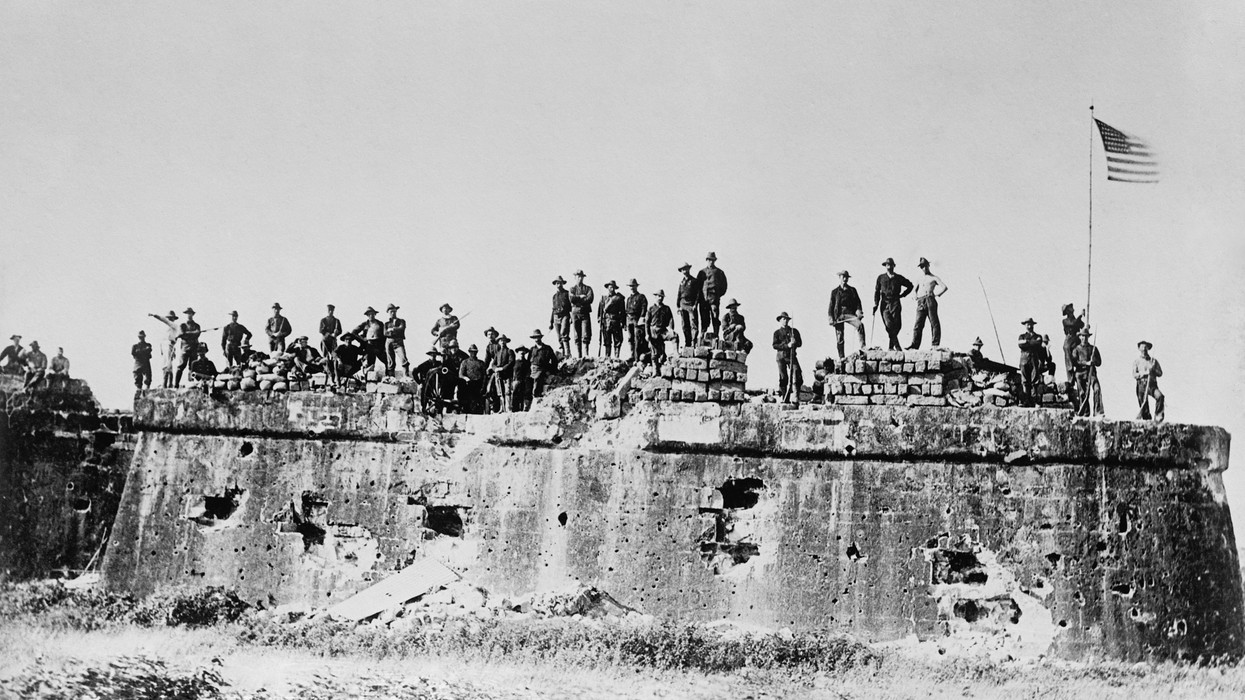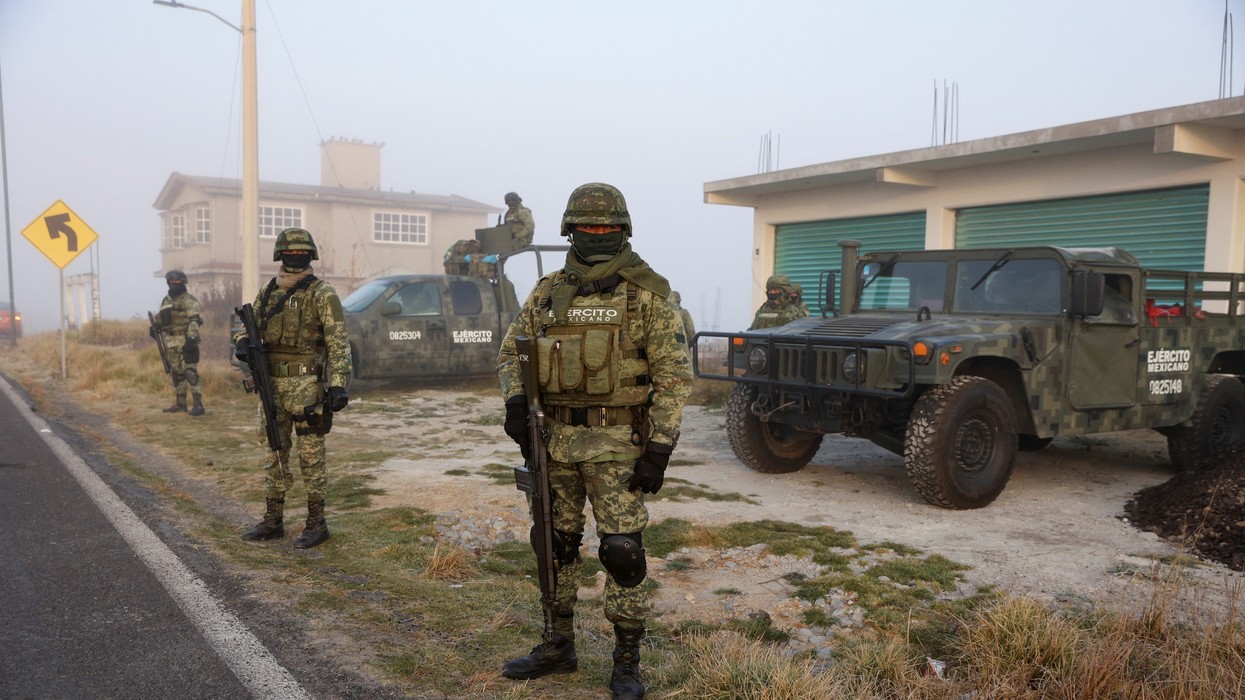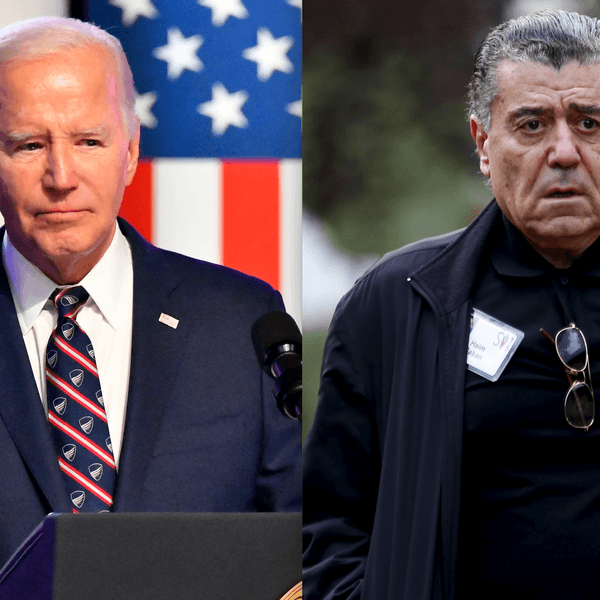The House returned to session this week after the summer recess and only has until the end of the month — two weeks — to pass the 12 funding bills necessary to avoid a government shutdown.
In lieu of a long-term spending bill, the White House has urged lawmakers to pass a continuing resolution, a stopgap measure which would maintain current funding levels until a larger agreement is reached. In addition to the money needed to keep the government running, President Joe Biden’s $25 billion supplemental spending request for Ukraine also hangs in the balance.
The House Freedom Caucus, the roughly 50-member bloc of Republicans, has voiced strong opposition to a stopgap measure. In August, the group released a list of demands that would be necessary for them to approve the spending bills on the table. Included in the group’s statement from last month — which required the support of 80 percent of its members — is a rejection of “any blank check for Ukraine in any supplemental appropriations bill.”
Meanwhile, the Biden administration and Senate Republican leadership have endorsed legislation that ties Ukraine-related assistance with increased disaster relief funding in an emergency spending package.
Last Thursday, Punchbowl News reported that McCarthy was considering attaching the disaster relief to a continuing resolution while omitting aid to Ukraine from the short-term spending bill, setting up a potential showdown with the White House and Senate.
McCarthy has sent mixed signals about his position on Ukraine aid since saying that there would be no “blank check” for Kyiv prior to ascending to the speakership. By deciding to separate Ukraine aid from the stopgap funding bill and reportedly instead tying it to controversial immigration policies, McCarthy has leaned closer to the right flank of his party on this question.
This maneuver may open the door for more debate over funding for Ukraine, though the group is not necessarily in agreement over what precisely “no blank check” means.
A spokesperson for freshman Rep. Anna Paulina Luna (R-Fla.), for example, told Responsible Statecraft in an email that the congresswoman does not and never will support any aid package to Ukraine.
Other Republicans who are not formally a part of the Freedom Caucus, have made similar statements. Prior to the midterm elections, Rep. Marjorie Taylor Greene (R-Ga.) said that if the GOP were to win the House, “not another penny” would go to Ukraine. And Rep. Matt Gaetz (R-Fla.) has introduced legislation that would cut off all funding to Kyiv.
Others have called for the conditioning of aid. Rep. Andy Harris (R-Md.), one member of the Freedom Caucus who in the past consistently supported unconditional support for Kyiv, has changed his tune in response to the stalled counteroffensive.
“I’ll be blunt, it’s failed,” Harris said at a town hall meeting last month. “I’m not sure it’s winnable anymore.” Asked in an interview following the town hall about what this analysis meant for his support for the next tranche of funding, Harris said, “If there is humanitarian monies, nonmilitary monies, or military monies without an inspector general, I’m not supporting it.”
Rep. Chip Roy (R-Texas) expressed hesitancy about whether and when it was worth it to pass a funding measure at this point in time. “Why are we talking about Ukraine supplemental when we can’t figure out how to fund our own operation of government to do what it's supposed to do?” he asked during a press gaggle on Monday morning.
“I want to see what claim there is for actual success in Ukraine," he added. "And I want to know how every dollar that $113 billion is going to be spent. Come present that to me as a member of Congress, and then talk to me about” what future funding should look like.
Rep. Warren Davidson (R-Ohio) earlier this year introduced an amendment to the NDAA that would have required the Biden administration to clearly define and assess its war strategy before Congress approved any more funding. The restriction would have only applied to the funds doled out in the NDAA each year.
As RS’s Kelley Vlahos reported at the time, “[r]ight now that includes several hundred million budgeted for the Ukraine Security Assistance Initiative (USAI), but would not impact the vast bulk of money that might be passed in a supplemental package.” The amendment eventually failed, with a vote tally of 129-301.
Now, Davidson, who has not voted in favor of any aid package to date, tells RS, “A blank check to Ukraine is off the table. There shouldn’t be any consideration of future aid until the Biden administration provides Congress with a clear mission.” Until then, Davidson says, he will continue to oppose any further aid.
The looming debate could set up a clash between McCarthy and Senate Minority Leader Mitch McConnell (R-Ky.). McConnell has been a staunch supporter of Ukraine’s effort. As a recent profile in Politico noted: “Just since McCarthy’s debt ceiling deal at the end of May, which sent a chill through the ranks of Congress’s defense hawks, McConnell has used eight speeches on the Senate floor and five news conferences to address the importance of supporting the Ukrainians.”
A number of other prominent Senate Republicans, including John Thune (R-S.D.), Thom Tillis (R-N.C.) — both members of McConnell’s leadership team — and Lindsey Graham (R-S.C.) all expressed their disappointment at McCarthy’s reported decision to keep Ukraine funding out of the continuing resolution.
According to Punchbowl, Graham has been “trying to impress on House Republicans that pulling the plug on Ukraine would amount to ‘creating chaos in the world’ and rewarding Vladimir Putin.”
But, as the Washington Post reported earlier this week, tensions are continuing to grow among the GOP over how long Washington can continue to fund Ukraine, and some members of the GOP caucus have begun to worry that the effort can become another “forever war.”
Rep. Brian Mast (R-Fla.), a veteran of the war in Afghanistan, who one month after Russia’s invasion released a statement strongly supporting the defense of Ukraine and sending aid to Kyiv, saying “America should always choose the side of democracy and freedom. I’ll continue to make that choice every day that I represent you in Congress,” now tells the Post that he will not support any further aid absent a clear strategy.
“I can support something, but I can’t support nothing,” he said. “That’s how you get what happened in Afghanistan.”- Most Americans don't want Congress to approve more aid for Ukraine war ›
- Speaker McCarthy drops 'blank check' for 'full support' of Ukraine aid ›
- Rep. Warren Davidson: 'No mission, no aid' for Ukraine ›
- Ukraine aid fight is central to government shutdown debate - Responsible Statecraft ›
- Shutdown averted but Ukraine aid left behind - Responsible Statecraft ›
- Wait, how much Ukraine aid money does the US have left? - Responsible Statecraft ›















